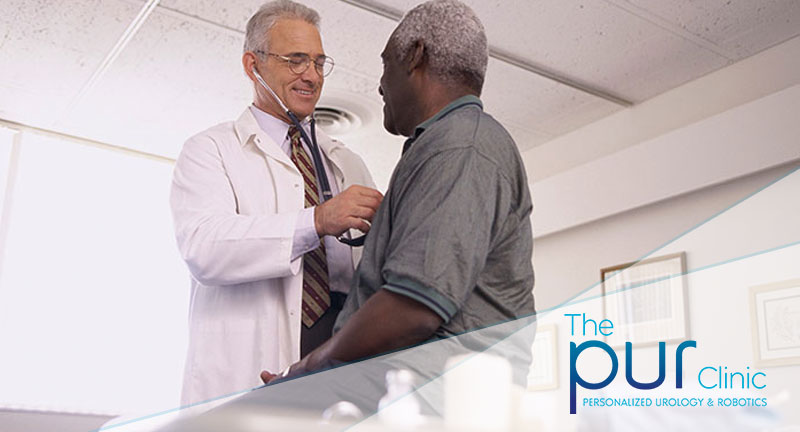

As a urologist, a good portion of what I do is dedicated to the screening, diagnosis and treatment of prostate cancer. It’s an unfortunate truth, but odds are, you or someone you know will one day be affected by this form of cancer. That’s why the month of September is dedicated to raising awareness about prostate cancer, how it’s treated and how we can prevent it.
Here, I’ve provided some information about prostate cancer that can help you or your loved one learn more about risk factors, how to get screened and what to do if you’ve been diagnosed.
How Common is Prostate Cancer?
As you’re reading this, you may be sitting there thinking, “I’m not at risk for prostate cancer. It doesn’t run in my family.” But the reality is that every male carries some level of risk—whether it runs in their family or not. In fact, prostate cancer is the second most common cancer in American men, behind only skin cancer. It’s also the second leading cause of cancer-related death among men after lung cancer.
In 2014, nearly 233,000 new cases of prostate cancer will be diagnosed, and around 30,000 men will die from the disease. This essentially means that one in seven men will be diagnosed with prostate cancer in their lifetime, and one in 36 will die from it.
While prostate cancer is certainly a serious disease, the survival rate is actually quite high. In fact, there are more than 2.5 million prostate cancer survivors still alive today.
What is the Prostate?
The prostate is small organ about the size of a walnut that is located under the bladder and over the rectum. Through the prostate travels the urethra, which is where urine moves from the bladder to the penis. The nerves that control erectile function also run alongside the prostate.
The prostate is not an essential life organ. However, it is necessary for reproduction, as it helps with sperm survival, transportation and fertilization. With age, the prostate can become larger and cause difficulty with urination. This growth is usually a benign condition known as an enlarged prostate, and it can be treated with medications or surgery. However, it’s important to make sure this problem isn’t caused by prostate cancer first.
How Do I Get Screened for Prostate Cancer?
Screening for prostate cancer is a pretty simple process. Although it may be slightly uncomfortable, it can be the key to determining whether you have cancer.
The first portion of a prostate cancer screening is done through a physical exam. Your doctor will perform what is known as a digital rectal exam, where the prostate is evaluated for any abnormal bumps or increase in size….
– Read the entire article online at: Orlando Health Blog
